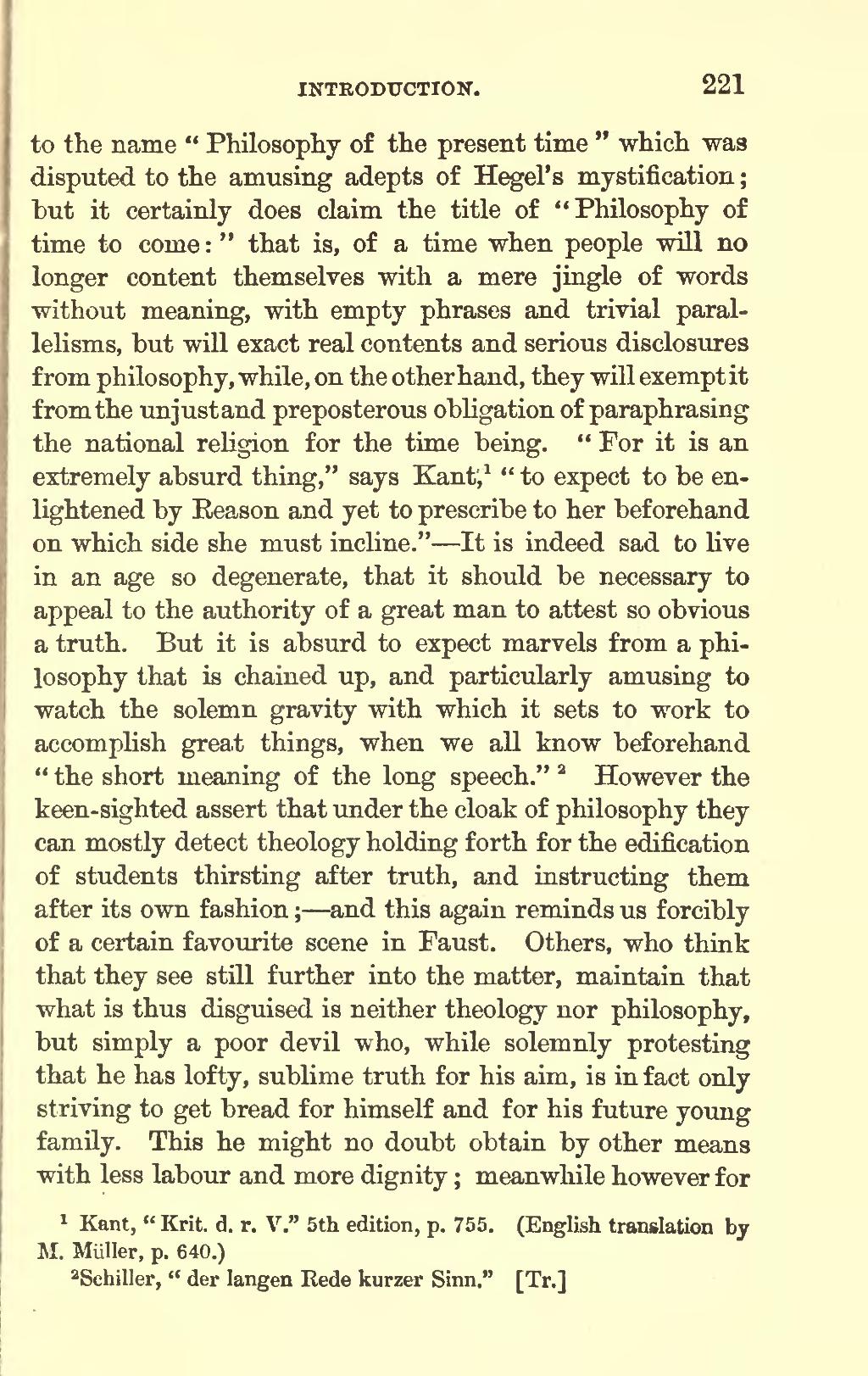to the name "Philosophy of the present time" which was a competition among the amusing adepts of Hegel's mystification; but it certainly does claim the title of "Philosophy of time to come:" that is, of a time when people will no longer content themselves with a mere jingle of words without meaning, with empty phrases and trivial parallelisms, but will exact real contents and serious disclosures from philosophy, while, on the other hand, they will exempt it from the unjust and preposterous obligation of paraphrasing the national religion for the time being. "For it is an extremely absurd thing," says Kant,[1] "to expect to be enlightened by Reason and yet to prescribe to her beforehand on which side she must incline."—It is indeed sad to live in an age so degenerate, that it should be necessary to appeal to the authority of a great man to attest so obvious a truth. But it is absurd to expect marvels from a philosophy that is chained up, and particularly amusing to watch the solemn gravity with which it sets to work to accomplish great things, when we all know beforehand "the short meaning of the long speech."[2] However the keen-sighted assert that under the cloak of philosophy they can mostly detect theology holding forth for the edification of students thirsting after truth, and instructing them after its own fashion;—and this again reminds us forcibly of a certain favourite scene in Faust.[3] Others, who think that they see still farther into the matter, maintain that what is thus disguised is neither theology nor philosophy, but simply a poor devil who, while solemnly protesting that he has lofty, sublime truth for his aim, is in fact only striving to get bread for himself and for his future young family. This he might no doubt obtain by other means with less labour and more dignity; meanwhile however for
- ↑ Kant, "Krit. d. r. V." 5th edition, p. 775., (English translation by M. Muller, p. 640.)
- ↑ Schiller, "der langen Rede kurzer Sinn." [Tr.]
- ↑ Goethe's Faust, part 1, lines 1982-2000 ("I almost think theology would pay [...] stick to words [...] just where no ideas are, the proper word is never far [...] with words a system can be spun.") (Wikisource contributor note)
